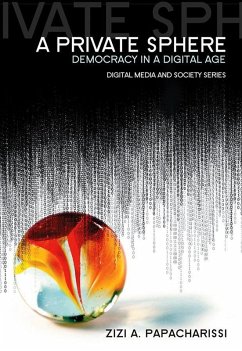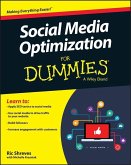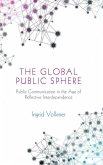Online technologies excite the public imagination with narratives of democratization. The Internet is a political medium, borne of democracy, but is it democratizing?
Late modern democracies are characterized by civic apathy, public skepticism, disillusionment with politics, and general disinterest in conventional political process. And yet, public interest in blogging, online news, net-based activism, collaborative news filtering, and online networking reveal an electorate that is not disinterested, but rather, fatigued with political conventions of the mainstream.
This book examines how online digital media shape and are shaped by contemporary democracies, by addressing the following issues:
Students and scholars of media studies, political science, and critical theory will find this to be a fresh engagement with some of the most important questions facing democracies today.
Late modern democracies are characterized by civic apathy, public skepticism, disillusionment with politics, and general disinterest in conventional political process. And yet, public interest in blogging, online news, net-based activism, collaborative news filtering, and online networking reveal an electorate that is not disinterested, but rather, fatigued with political conventions of the mainstream.
This book examines how online digital media shape and are shaped by contemporary democracies, by addressing the following issues:
- How do online technologies remake how we function as citizens in contemporary democracies?
- What happens to our understanding of public and private as digitalized democracies converge technologies, spaces and practices?
- How do citizens of today understand and practice their civic responsibilities, and how do they compare to citizens of the past?
- How do discourses of globalization, commercialization and convergence inform audience/producer, citizen/consumer, personal/political, public/private roles individuals must take on?
- Are resulting political behaviors atomized or collective?
- Is there a public sphere anymore, and if not, what model of civic engagement expresses current tendencies and tensions best?
Students and scholars of media studies, political science, and critical theory will find this to be a fresh engagement with some of the most important questions facing democracies today.
Dieser Download kann aus rechtlichen Gründen nur mit Rechnungsadresse in D ausgeliefert werden.
"This is a deeply thoughtful book that asks a genuinely important questionÑDo the new media empower us or do they trap us in our own cocoons, cutting us off from meaningful contact with others? Papacharissi doesn't let the reader off easily. Insistently, beguilingly, she brings up uncomfortable issuesÑWhy are blogs so narcissistic? What happens politically when YouTube goes beyond the pale...Ñand she never settles for easy answers. If you care about politics, if you care about modernity, read this book."
Roderick P. Hart, University of Texas at Austin
"Papacharissi is a pioneer in the study of democracy and how it is "practiced" in the digital age. A Private Sphere is a deep, thoughtful exploration of citizenship, information, and technology at a moment of great fluidity. Anyone with an interest in how media shape political culture would do well to engage the arguments of this terrific book."
Susan Herbst, Georgia Tech
"An thoughtful and thought-provoking book. Papacharissi's argument that the convergence of technology, practices and spaces is opening a private sphere as the locus for reworked modes of citizenship is an intriguing and important one. Read this book!"
Charles Whitney, Northwestern University
Roderick P. Hart, University of Texas at Austin
"Papacharissi is a pioneer in the study of democracy and how it is "practiced" in the digital age. A Private Sphere is a deep, thoughtful exploration of citizenship, information, and technology at a moment of great fluidity. Anyone with an interest in how media shape political culture would do well to engage the arguments of this terrific book."
Susan Herbst, Georgia Tech
"An thoughtful and thought-provoking book. Papacharissi's argument that the convergence of technology, practices and spaces is opening a private sphere as the locus for reworked modes of citizenship is an intriguing and important one. Read this book!"
Charles Whitney, Northwestern University









